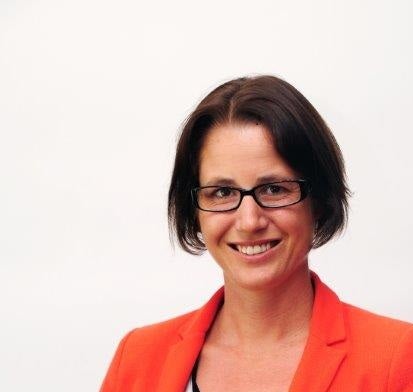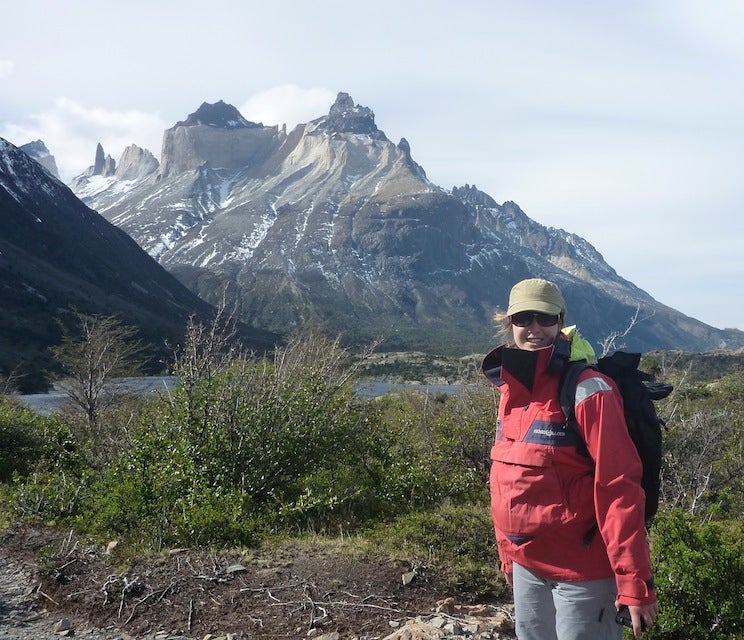
Eliza Anning
SENIOR LEGAL COUNSEL
PATRICK BULK AND AUTOMOTIVE PORTS
Eliza Anning grew up in Tasmania, a small island at the southern tip of Australia. Whilst Tasmania is often best known as the home of the Tasmanian devil, she notes there is far more to the island state than the carnivorous marsupial. She grew up in Hobart, the capital, and went to school and university there. "I lived there until I was 24. It was a great place to grow up and I still love going home to the island state," she says.
For Eliza, becoming a lawyer was a natural choice. She often played the part of mediator in her family and friendship groups. "I was always looking for solutions to bring about resolution to conflict," she says. Whilst it was her mediation skills that lead her to the law she quickly realized that it was the commercial side of law that interested her more so that the world of alternative dispute resolution.
Her commercial skills were honed at an early age when she worked in an accounting firm during school break in her last years of school. It was her time working in environment that sparked an interest in the commercial world. "Whilst I wasn't sure what I'd want to do at the end of law school, I knew I wanted to venture further into the commercial world and use my skills to resolve commercial issues that people face every day.
Law school: No crowd to hide in
Eliza's University of Tasmania Law School class had about 150 students. Learning was focused and intense. "You certainly can't hide in the crowd in a year group of 150 students because there's no crowd to hide in," she remarks. Part of the law school program includes a six-month practical training course. Because the law school and the legal community are small in Hobart, they have close ties, and the training course is an opportunity for law students to receive direct mentoring from practicing lawyers. "Each week we were required to appear in court in mock trials before sitting magistrates and judges of the Tasmanian courts. Whilst turning up to be questioned on your legal arguments by senior judges was a daunting task as a law student, I am certainly grateful to have been put through this rigor during law school and before I was standing before judges on behalf of a client," she recalls.
Eliza admits that whilst there were many upsides to attending law school in Tasmania, not least of all meeting many of her close friends with whom she still stays in contact, a downside it was that learnings were focused on the type of legal work done in Hobart, which meant she was not exposed to larger commercial transactions. Still, she was certainly prepared to enter the legal profession: "When I stepped out into the world as a lawyer on my very first day I had to appear in court. Fortunately, I wasn't nervous about it because I had already been appearing in court for six months as part of the legal practice program. The only difference on my first day of work was that I had a real client."
Broad exposure from tribunals to property sales
Right after law school she worked for a small law firm in Tasmania and was given a lot of autonomy to work on matters from an early stage. In her first year of practice she appeared in local court for criminal proceedings and the Federal Court of Australia for bankruptcy matters. She attended various tribunals and appeared for clients at a number of mediations. She also conducted business and property sales and drafted numerous commercial contracting arrangements and leases. Of the experience, she says:
By the time I was in my second year I had my own clients. I think that's an experience that people don't often get when they go to a bigger firm straight out of law school. I couldn't have asked for broader exposure in different areas of law in my first year and I think that set me up for a role as in-house counsel.
Having spent formative years in Tasmania, it was time to explore the mainland of Australia. Eliza and her partner, Richard, moved to Sydney in 2007, and she took up a role with a large national Australian law firm called Clayton Utz. Whilst in this role she experienced the discipline and meticulousness that comes with working in a large firm but was still able to operate with some autonomy as in her first year at the firm her team consisted of just her and the partner for whom she worked. This meant she had considerable contact directly with clients, particularly clients in the racing and gaming industry, a specialty area of law Eliza developed her skills in whilst at Clayton Utz.
The next step on her journey came in the form a six month career break during which she traveled through South America with Richard. This was truly an amazing experience. From hiking in Torres del Paine national park in snow, to camping in the Amazon and snorkeling in the waters amongst the fish of the Galapagos Islands, Eliza and Richard made their way around a good portion of the continent, although as Eliza notes "Brazil and Columbia will have to wait until next time!"

With neither of them being able to speak Spanish at the start of their trip, they were often confronted with needing to use mime to get through their travels with varying degrees of success. "This trip gave me a sense of dealing with situations that were well outside of my comfort zone. When you are backpacking in a country where you don't speak the language and don't know where you are going or how you are going to get there you really test what type of inner strength you have," she says.
Moving in-house: Fewer hours but more intense
When they returned to Australia it was to Newcastle, a city two hours north of Sydney, where Eliza worked as a commercial lawyer at Moray and Agnew Lawyers. After taking on a coal export port company as a client and forming close ties with this business, she became interested in moving to an in-house role. It was not long and she found herself at Patrick, where she currently works.
Patrick is a logistics shipping company, and it is divided into two divisions: One is focused on container terminals, and the other is focused on bulk and automotive port services, which involves moving agricultural products or steel products — anything that doesn't go through a container. Eliza works with both groups, providing commercial legal advice whilst managing risk and implementing governance frameworks.
Of the transition from firm to in-house, she says:
I remember thinking my first week in-house: "What have I done, is this really what I want? It is quite a different environment. Someone once said to me that "the hours are better in-house, but every hour is far more intense than you ever experienced in private practice" and that's a good way to describe it. Because you are fully immersed in the business every matter you work on has a continuing nature and thus you never simply close a transaction. In fact the closure of a transaction usually means the real work has just begun.
A big challenge for Eliza was learning the logistics ports business, and her approach was to take time and ask questions. She focused on developing relationships and understanding how every part of the company fit into a larger structure. Being able to make those connections helps to give informed, practical advice. "I think that's what makes in-house exciting is that you do get to understand how a business operates and how the logistics chain operates and what the external and internal pressures are on that chain," she says.
Working in the white space
Working as a senior lawyer in a business is far more diverse than working in private practice. Whilst you are expected to manage risk through the provision of legal advice there is so much more to the role. As a senior leader in the organization Eliza not only provides legal advice but contributes to the development and execution of the business strategy.
For example, the Patrick business is facing decreased volume in Australia, and so there are key expansion projects, both in Australia and offshore in which Eliza is involved. "One of the challenges in that role for me is about realizing that I don't only contribute as a lawyer in this group but also as a senior manager in the business. This can sometimes be quite a different contribution from just a strict legal review," she says.
In addition to these roles, Eliza observes that as an in-house lawyer there's always a need to manage stakeholders and connect the dots. "If you look at an organizational chart the role of legal counsel is not just to engage up and down the hierarchy. It's actually about making sure that the links between the people in the business are filled and the gaps are closed," she says. She refers to these links as "the white space." By working within this space she is able to build relationships and provide insight into issues faced by the business and suggest solutions that perhaps weren't obvious at first to others.
One of the key things I think I contribute to my teams is being someone that can look at both the dynamic and the content of a team discussion and then step back from the issue itself to question and test our approach. In some cases it may be just checking that we're talking about the right issue and other times it is identifying those blind spots that as a team we can sometimes miss when we forget to lift our heads up from the detail of the discussion.
Getting to know... Eliza Anning
You won the 2015 ILO/ACC In-house Counsel of Year in the M&A category for the Asia Pacific Region. What makes you successful at your job?
I think that deep knowledge and understanding of operations really helps me be successful in my role. It's one thing to do an M&A transaction from the private practice side; it's quite a different thing to be doing it in an in-house role. The actual transaction is sometimes the easiest part. It's the integration of the new business into the existing structure that really poses the biggest challenge. I think having that deep knowledge of the operations and understanding of how the more practical things in the business work means that the advice you can give the business on the actual transaction side is far more proactive as you can foresee some of the issues that have the potential to arise and remove them before they actually come about.
What do you do in your free time?
In my free time I love being outdoors. I row sculling boats, play field hockey and sail. I love being on the water and Richard and I make sure we get out whenever we can on his parents to yacht to race off-shore near Newcastle.
I also have quite a large garden at home which when I get a chance I get out into if only to discover more weeds than plants are growing. There is something extremely grounding about digging in the dirt and growing your own flowers, herbs and vegetables and I think we all need grounding from our busy lives some times.
What was the highlight of your trip to South America?
It's hard to narrow it down as I loved so many things about South America and cannot wait to go back. I think my favorite of all the places I have been in the world is Torres Del Paine National Park in the southern end of Chile. We spent five days bushwalking in snow, rain and 60-knot winds and even the whether couldn't deter me from falling for this place. Whilst at times this was challenging, particularly the night we camped in minus 10 degrees, it's the most spectacular and beautiful place, and it was just such a brilliant experience to be out with nature, camping and walking and seeing some of the glacial sites.
What is your proudest personal achievement?
Last year I bought a little house — a two-bedroom house that needed a lot of renovation and took on the project of doing it up so I could rent it out. Whilst I'd previously done up houses with Richard, this one was my own project to complete. I had many helpers along the way and it was incredibly satisfying for me to not only project manage this renovation but also get my hands dirty by stripping floors, painting walls and completely removing and remodeling the bathroom and kitchen. I have truly invested something in that little house, more than just the funds to buy it!



